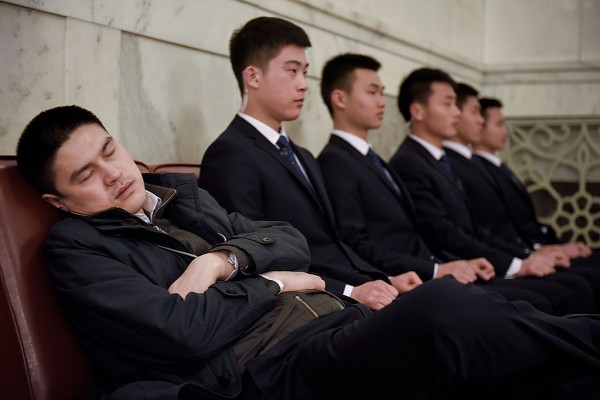A survey of Chinese people found that many have sleeping problems since the average sleep index in the country is only 69 out of 100. The farther from 100 is an indicator of an overall gap in the quality of sleep among Chinese.
Dataway, a consultant company, and Sleemon, a leading manufacturer of mattress in China, released over the weekend the China Sleep Quality Index 2016 report ahead of World Sleep Day on Monday, according to China Daily. Dataway sent online questionnaire to netizens in 30 Chinese provinces, municipalities and autonomous regions.
There are seven sub-indices to the sleep index, and Chinese scored low in ability to fall asleep quickly, to have regular sleeping hours and to control emotions. For ability to control emotions, Chinese got a score of 49.3, the lowest area.
It shows that the bad sleep many Chinese experienced is because of negative emotions. More affected by this problem are those who live in bigger cities such as Guangzhou, Shanghai and Beijing where the average index was 67.2. In contrast, residents of middle-size and small cities averaged 70.4.
The best sleepers were residents of Nanjing City in Jiangsu Province who got an average index of 71.4. The worst were from Hohhot in Inner Mongolia Autonomous Region who averaged 65.5.
Of the 18 major professions of the survey respondents, salespeople and freelancers enjoyed longest sleep on working days by an average of 8.3 hours. On the opposite end are newspaper journalists who slept only an average of 7.5 hours.
Zhang Guoping, a physician at Beijing Shijitan Hospital’s Neurology Department, reminded Chinese, “Insomnia can cause harm to health, including memory loss, and long-term insomnia suffers are three to four times more likely to suffer depression than those without insomnia.”
Time needed to have quality sleep vary depending on a person’s age. Among adults, those in age range of 26 to 64, the recommended time is 7 to 9 hours, according to the National Sleep Foundation, reported Metro.


